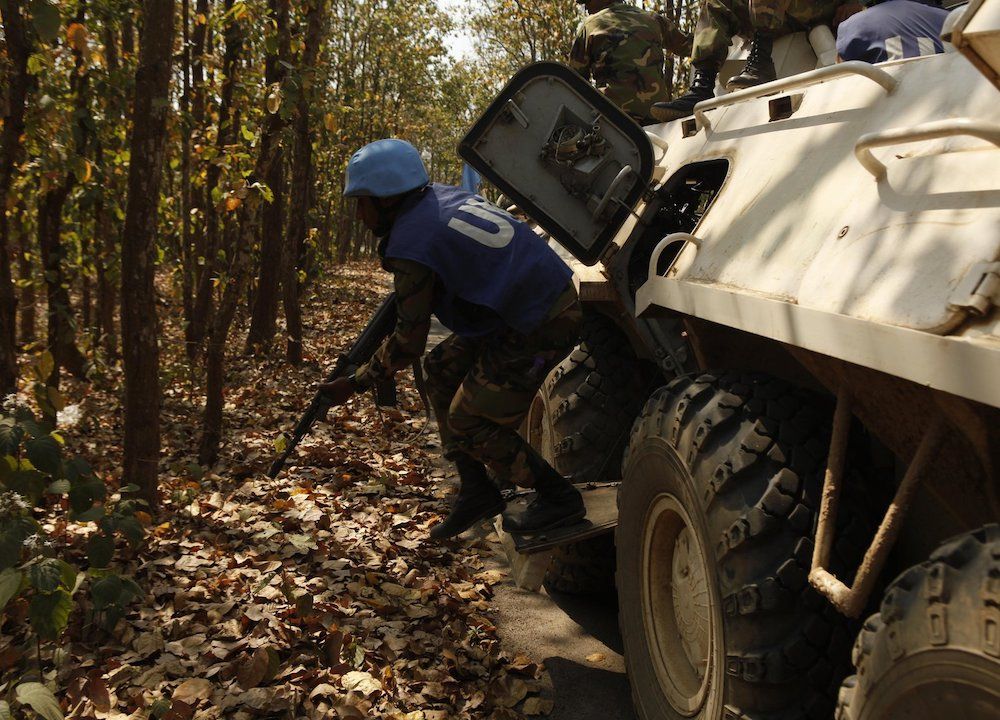UN refutes Bangladesh Army spyware claims again
The UN Department of Peace Operations denies for a second time that it had any agreement with the Bangladesh Army to purchase surveillance equipment.

The United Nations has for a second time contradicted the Bangladesh Army’s claim about its purchase of Israeli manufactured surveillance equipment for UN peacekeeping operations. The purchase was first highlighted in Al Jazeera Investigative Unit’s documentary “All the prime minister’s men”.
“No agreement was pursued with Bangladesh [to purchase surveillance equipment for UN peacekeeping operations]”, a spokesperson for the UN Department of Peace Operations (DPO) told Netra News. The spokesperson was responding to a Bangladesh Army statement, issued on February 15th through the Inter Services Public Relations Directorate (ISPR), which claimed that the army purchased the equipment in response to a request from the UN.
In a statement provided to Netra News, the DPO spokesperson said, “We can confirm that Bangladesh was one of the 28 troop contributing countries approached between mid-2013 and December 2016 to provide capabilities to transform a Signal Unit to a Signal Intelligence Unit required for Monusco [a UN stabilisation mission in the Democratic Republic of the Congo]. In January 2017, the UN was informed by Bangladesh that it did not have all the equipment needed for this unit. No agreement was pursued with Bangladesh, and another TCC (Tanzania) was selected on 20 July 2017 to deploy the required capability.” TCC stands for Troop Contributing Country.
Previously, the UN had issued a statement, on February 4th, that “the United Nations has not identified a requirement for the capability provided by the operation of electronic equipment of the nature described in the Al Jazeera reporting and such equipment has not been deployed with Bangladeshi contingents in United Nations peacekeeping operations.”
The capability being referred to is an “IMSI catcher” that can be used to monitor and intercept the mobile phone traffic of hundreds of people simultaneously. Al Jazeera’s documentary claimed that the Bangladesh military had bought the mass surveillance technology from the Israeli company Picsix using a front company in Hungary and via a middleman in Singapore.
A senior diplomat in the UN system explained to Netra News, “Bangladesh was not selected by the UN to provide this equipment. But that is what the Bangladesh Army is essentially suggesting in its statement.”
The diplomat pointed out that the Bangladesh government told the UN in January 2017 that it did not have the relevant equipment, and that six months later in July 2017, the UN had contracted the Tanzanian government to deploy the required equipment. “So it does not make sense why would the Bangladesh Army be purchasing the equipment two years later in 2019,” the diplomat said.
The kind of equipment that the UN was asking for as part of its request to “transform a Signal Unit to a Signal Intelligence Unit” involved having vehicles with jammers on it, ability to detect electronic signatures from IEDs and having some capacity to electronically intercept calls that are in the proximity of convoys.
In the Al Jazeera film, the middleman involved in the purchase of the Israel-origin equipment by the Bangladesh Army, was recorded as saying, “The technology is very aggressive and intrusive. You don’t want the public to know that you’re using that equipment.”
According to Eliot Bendinelli from Privacy International, who was interviewed by Al Jazeera, the equipment can intercept “up to 200 or 300 mobile phones” simultaneously, “This specific model is also capable of interfering with the communications. So, you are going to be able to change the content of a text message. You could be spoofing the identity of someone”.
Previous media reports suggest such technologies are often used by Bangladeshi security agencies — including the Directorate General of Forces Intelligence (DGFI), the military intelleigence agency — to target political opponents and dissidents.●